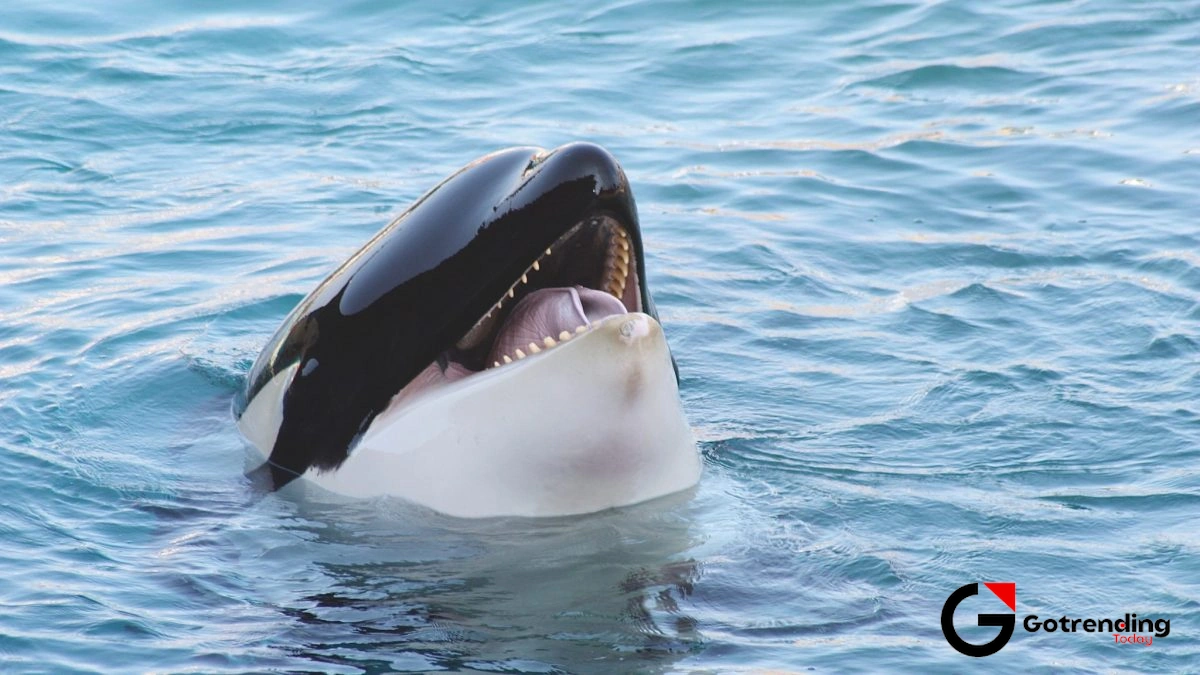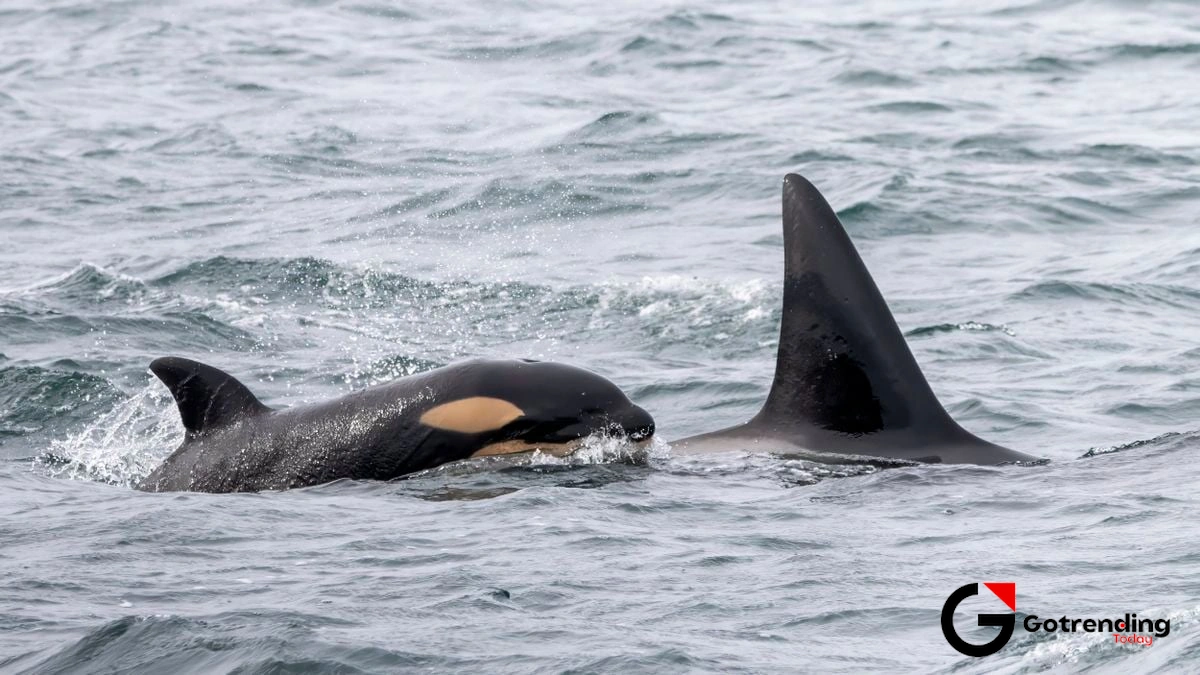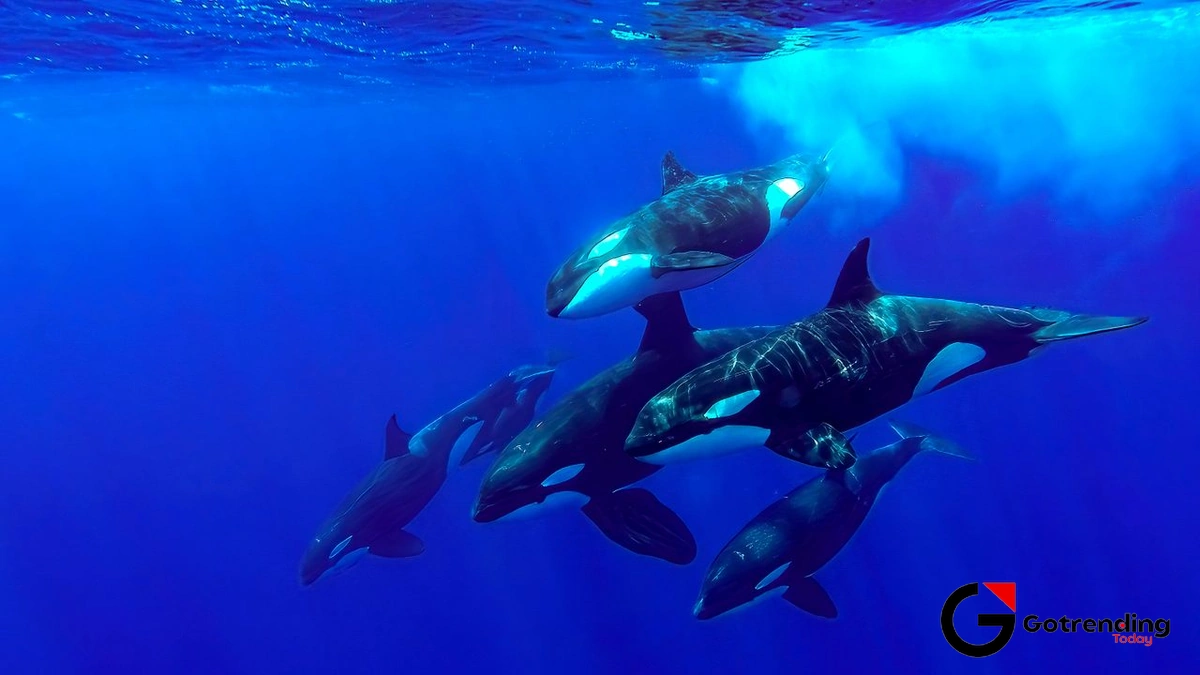The Orca Isn’t a ‘Killer Whale’, and It’s Trying to Tell Us Something
You’ve seen them on your Instagram feed. That sleek, black-and-white torpedo of an animal, launching itself out of a glassy ocean. You’ve probably heard them called killer whales . And recently, you’ve almost certainly seen the viral headlines about them ‘attacking’ yachts off the coast of Europe.
But let’s grab a coffee and talk about what’s really going on. Because the orca is probably the most misunderstood animal on the planet. And the recent strange events aren’t just random acts of violence; they’re a fascinating, complex puzzle that reveals just how intelligent and perhaps, how stressed these creatures are.
For years, I’ve been obsessed with animal intelligence, and the orca sits at the very peak of that mountain. What we’re seeing today isn’t just a news story. It’s a real-time glimpse into a non-human culture reacting to a changing world. And it’s wild.
So, Why Do We Call Them ‘Killer Whales’? (A History of Bad PR)

First, let’s get one thing straight. The name is a total mistranslation. Ancient sailors, witnessing their incredible hunting prowess, called them “asesina de ballenas” which is Spanish for “whale killer,” because they saw them hunting large whales. Over time, the name got flipped around in English to the more menacing “killer whale.”
It’s a branding problem, really. It paints a picture of a bloodthirsty monster, which couldn’t be further from the truth. Here’s the reality:
- They’re Not Whales: Surprise! The orca (Orcinus orca) is actually the largest member of the oceanic dolphin family. Think of them as dolphins on steroids, with a brain to match.
- Apex, Not Evil: They are an apex predator, yes. They are incredibly effective hunters. Some pods specialize in hunting seals, others take on fish, and a few are skilled enough to hunt great white sharks (and win). Their “killer” reputation comes from their skill, not malice.
- The Human Factor: In the wild, there has been almost no credible record of an orca harming a human. The tragic stories you’ve heard have almost exclusively come from orcas in captivity—a stressful, unnatural environment that has nothing to do with their true nature.
So, the name is just bad PR. It’s like calling a tiger a “human killer” just because it’s a powerful predator. The truth is much more nuanced and, frankly, much more interesting.
The Einstein of the Ocean | A Peek Inside the Orca’s Mind

What truly fascinates me, and what scientists are still trying to fully grasp, is the sheer scale of orca intelligence . Their brains are the second-largest among all animals on Earth, but it’s not just about size. It’s about how they use it.
Orcas have something that we once thought was uniquely human: culture . This isn’t just instinct; it’s a set of learned behaviours, traditions, and even dialects passed down through generations, primarily by the matriarchs of the pod.
Let that sink in. Different families of orcas across the globe have their own unique ways of life.
- In Argentina, one pod has perfected the art of intentionally beaching themselves to snatch sea lions from the shore—a highly risky technique taught to younger generations.
- In the Antarctic, another group has figured out how to create powerful waves in unison to wash seals off floating ice floes.
- Different pods have their own “languages” or dialects. An orca from the Pacific Northwest wouldn’t be able to easily ‘speak’ with one from Iceland.
This is a level of cognitive and social complexity that puts them in a very exclusive club with humans, elephants, and great apes. They feel, they learn, they teach, and they cooperate in ways that are simply astonishing. They even have fads for a while in the 1980s, one pod started a trend of wearing dead salmon on their heads like hats. I’m not even kidding. Remember that. It’s important for what comes next.
The Big Question | Are Orcas Really ‘Attacking’ Boats?

This brings us to the headlines that are dominating the internet: orcas attacking boats off the coasts of Spain and Portugal. Since 2020, a specific, small, and critically endangered subpopulation of Iberian orcas has been ramming the rudders of sailboats, sometimes with enough force to disable them. For more context on their fascinating social structures, you can check out thisNational Geographic article.
Is it revenge? A coordinated uprising against humanity? It’s a tempting narrative, but the truth is likely something weirder and more complex.
The “revenge” theory often centers on one orca matriarch, nicknamed White Gladis. The hypothesis is that she may have had a traumatic encounter with a boat perhaps a collision or entanglement in fishing gear and is now teaching her pod to be hostile. It’s possible. But many scientists are leaning toward a different explanation.
Remember the salmon hats? The leading theory right now is that this boat-bumping is a… fad . A form of social play that has caught on within this specific family group. Think of it like a group of bored, hyper-intelligent teenagers who’ve discovered a new, thrilling, and slightly destructive game.
Here’s why this theory holds weight:
- The Behaviour Isn’t Aggressive: The orcas seem more focused and curious than angry. They specifically target the rudder, a moving part that provides tactile feedback. Once the boat stops moving, they almost always lose interest. They aren’t trying to sink the boats or harm the people.
- It’s Spreading Socially: The behaviour is being passed on to younger orcas in the pod, which is exactly how orca culture works. It’s a learned trend.
- Orcas Are Playful: These animals are known for their curiosity and playfulness. This might just be the latest, most impactful “game” they’ve invented.
So, it’s probably not a rebellion. It’s more likely a cultural phenomenon within one specific orca community. A destructive one, for sure, but one born out of intelligence and curiosity, not malice. If you’re looking for more general knowledge, check out our guide on a different kind of natural wonder .
Why Should We Care About Orcas Here in India?
Okay, orcas don’t swim in the Bay of Bengal or the Arabian Sea. They are a world away. So why should this matter to us, sitting here in Delhi, Mumbai, or Bengaluru?
Because the story of the orca is a story about intelligence itself. It forces us to question our own place at the top of the intellectual pyramid. It shows us that a rich, complex social life, culture, and deep emotional bonds can exist in a form so completely alien to our own. When we look at an orca , we are seeing a different kind of “person” staring back.
It’s also a powerful conservation story. The Iberian pod engaging in this boat-bumping behaviour is critically endangered. Their world is saturated with noise pollution from shipping, their primary food source (bluefin tuna) is scarce, and they navigate a world filled with our fishing lines and nets. Their strange new ‘fad’ might not be a direct response to this, but it’s happening against a backdrop of immense environmental pressure that we’ve created.
Studying the orca is like holding a mirror up to ourselves. It shows us the profound beauty and complexity of life on this planet, and it reminds us of our responsibility to protect it. For another interesting read, you might like this piece on the dynamics of human relationships .
Frequently Asked Questions About Orcas
Are orcas really dangerous to humans?
In the wild, no. There are virtually no documented cases of a wild orca intentionally killing a human. The perception of them as dangerous comes from their misleading name and the tragic incidents involving stressed orcas in captivity.
What’s the difference between an orca and a killer whale?
There is no difference! They are the same animal. “Orca” (from their scientific name, Orcinus orca ) is the preferred term for many scientists and conservationists to move away from the negative connotations of “killer whale.”
Can an orca really beat a great white shark?
Yes, and it has been documented multiple times. Orcas are larger, more intelligent, and hunt in cooperative pods. They can often outmanoeuvre and overpower a great white shark, sometimes flipping it upside down to induce a state of paralysis called tonic immobility. They are the true kings of the ocean.
Where do orcas live?
Pretty much everywhere! They are one of the most widely distributed mammals on Earth, found in every ocean from the frigid waters of the Arctic and Antarctic to the warmer waters along the equator. This is one of the key orca facts that shows their incredible adaptability.
Are orcas a type of whale?
No, this is a common misconception. Despite their size and “killer whale” nickname, orcas are genetically the largest species in the dolphin family.
The next time you see that black-and-white fin slice through the water on a screen, don’t just see a powerful predator. See a puzzle. See a culture. See a profoundly intelligent being navigating a world we both share. The real question isn’t why they’re bumping into boats, but what else we have yet to learn from the wise, weird, and wonderful mind of the orca.












